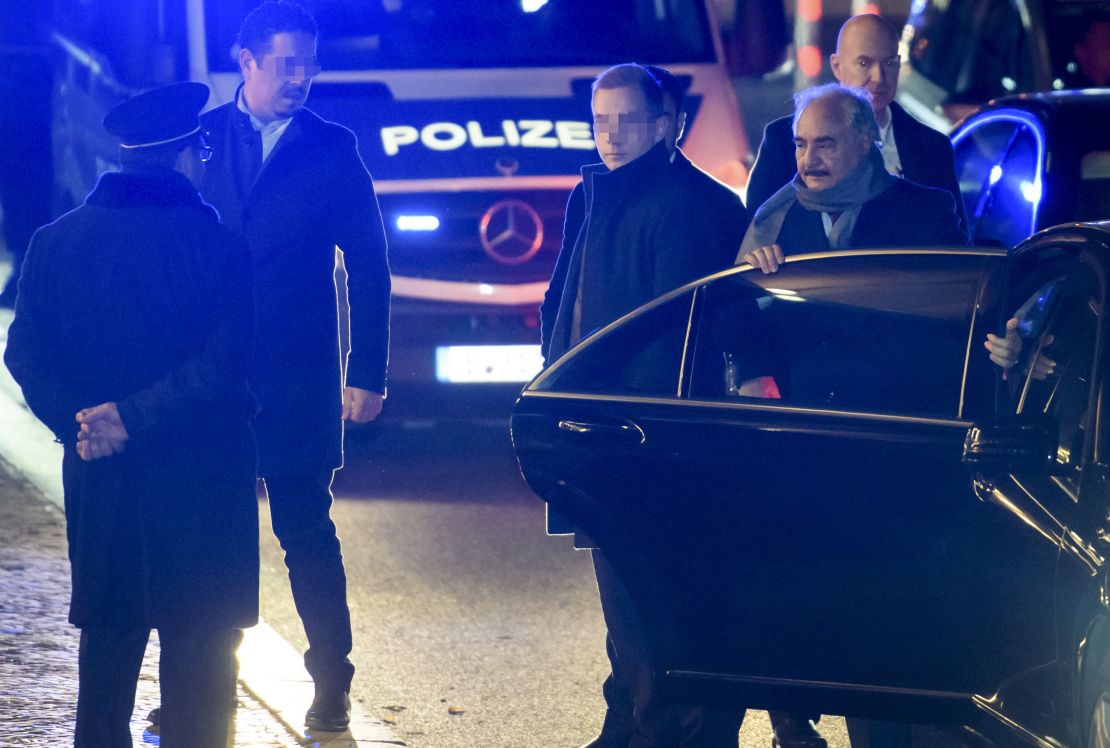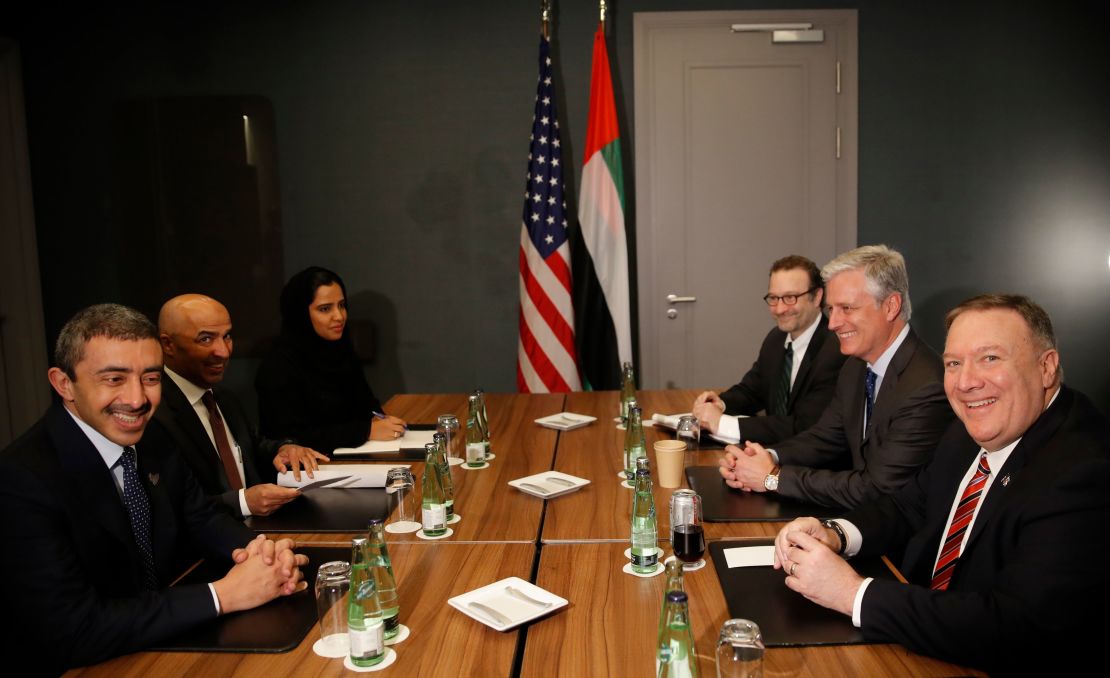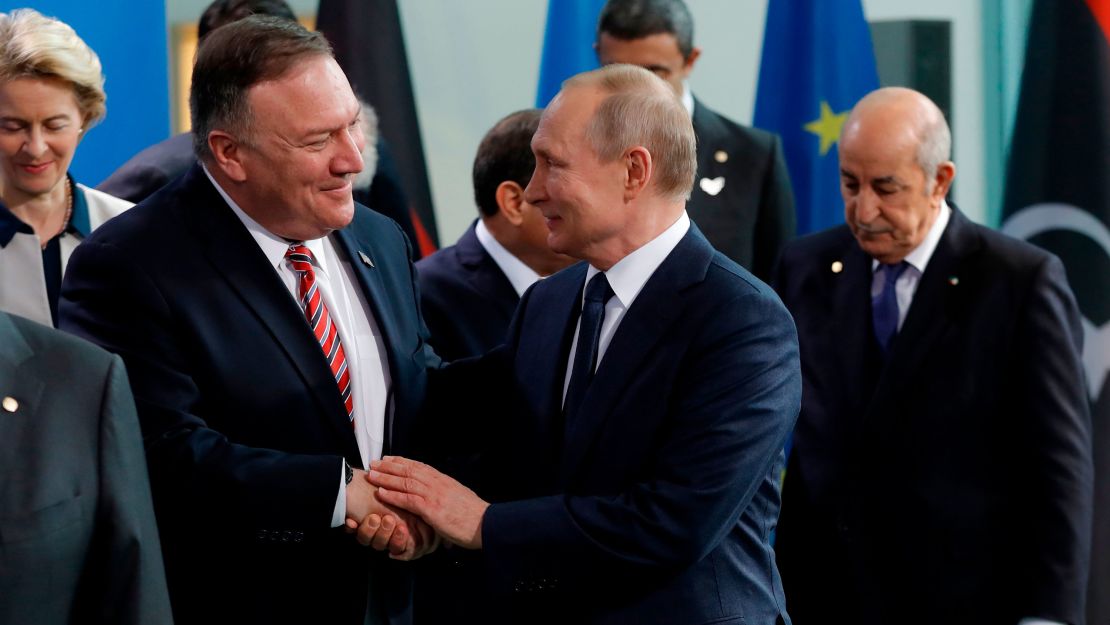A conference in Berlin that convened warring factions in Libya as well as their foreign backers to establish a permanent ceasefire called for sanctions against parties found in violation of any agreed-upon truce, according to a communique from the meeting.
The summit was called after a tentative truce brokered by Russia and Turkey a week ago collapsed. It aimed to restart talks around a political solution to what has become a proxy war with powerful international backers.
Violence escalated in April last year when renegade General Khalifa Haftar launched a bid to take the capital, Tripoli, from the UN-recognized government, led by Fayez al-Serraj.
Hundreds have died and 150,000 people, mostly children, have since been internally displaced, according to the UN Children’s Fund.
“This terrible situation cannot be allowed to continue,” UN Secretary-General Antonio Guterres said at the conference. “We must move from words to action.”
No truce agreement was achieved Sunday, but the chances of agreeing to any permanent ceasefire appeared to be unlikely before the conference started.
The Russia-Turkey truce appeared to have held for several days, but Haftar walked out of ceasefire talks in Moscow aimed at cementing the deal in the early hours of Tuesday this week. Heavy gunfire was reported days later.
Haftar and Serraj were both at the summit but didn’t plan to meet face to face, a source familiar with the conference told CNN before it started. Instead, German Foreign Minister Heiko Maas would serve as an intermediary between the two Libyan leaders at the heart of the conflict.
“We call upon the UNSC [United Nations Security Council] to impose appropriate sanctions on those who are found to be in violation of the ceasefire arrangements and on Member States to enforce these,” the conference communique stated.

The communique expressed a commitment to “refraining from interference in the armed conflict or in the internal affairs of Libya” and urges all international actors to do the same.
It also called for all parties to refrain from attacking oil facilities and infrastructure.
Libyan Interior Minister Fathi Bashagha told CNN’s Becky Anderson it would not consider a permanent truce without the full withdrawal of Haftar’s fighters.
“Any consideration of a permanent ceasefire should be contingent on a complete withdrawal and dismantling of Haftar’s militias, full departure of his foreign mercenaries, and upholding international law,” he said. “Nothing less will be credible.”
UK could deploy monitors
UK Prime Minister Boris Johnson said British troops could be deployed to Libya to monitor the ceasefire, if it were officially agreed.
Speaking on the tarmac as he arrived for the summit, Johnson said, “there is a case for us doing what we do very well, which is sending people, experts, to monitor the ceasefire,” but he cautioned that he didn’t see an agreement intact at the moment. “That’s what we are arguing for today.”
He called for an end to the violence in Libya, and showed support by the UN-backed political process in the country.
“Yes, we got rid of Gadhafi back in 2011, but it’s time now to move on and to bring Libya together under the UN. We want to have a UN-led peace process to stop this jockeying for position.”

The conflict in Libya has drawn in several foreign actors.German Chancellor Angela Merkel hosted the event, which was attended by French President Emmanuel Macron and Russian President Vladimir Putin – two leaders whose countries have shown support for Haftar.
Turkish President Recep Tayyip Erdogan also attended, backing Serraj. Before his departure from Turkey, he accused the international community of granting Haftar impunity for his “brutal attacks.”
“Actions of the putschist Haftar and his supporters, which have been violating United Nations Security Council resolutions, have been ignored,” he said at a press conference in İstanbul before heading to Berlin.
US Secretary of State Mike Pompeo also attended the talks, although the US policy on Libya is unclear. A Senior State Department official told reporters that the US thinks “all foreign forces should be out of Libya.”
“This is a region-wide conflict that is broadening and looking increasingly like Syria, which is why the whole international community is getting together in Germany,” the official said.
“But I think it’s so complex and heels are so far dug in that I would have moderate expectations as we go into this.”

Pompeo was photographed shaking hands with Putin, but it is not clear if the pair spoke in private.
In an interview with CNN’s Becky Anderson, the UN’s special representative to Libya, Ghassan Salame, said the US had “yet to choose its position on Libya, but it doesn’t appear to be very high on the radar screen of decision makers in DC.”
He echoed the spirit of the draft communique, obtained by CNN before the conference, questioning the growing number of foreign actors in the conflict.
“A lot of people are interfering in Libya. The whole question is, to do what?” Salame said.
“My own feeling is that if you interfere, if you engage, in order to support the UN action plan … you are welcome. If it is to push for a parallel or disrupt the UN plan, you are not welcome.”
Post-Gadhafi unrest
Instability has reigned in the North African country since the fall of strongman Moammar Gadhafi in 2011.
Political divisions also helped armed groups such as ISIS to gain a foothold in Libya, making it a dangerous springboard for thousands of Europe-bound migrants and a throbbing pressure point for the West.
Serraj’s internationally recognized Government of National Accord (GNA) runs the capital and the country’s northwest, while Haftar’s National Army (LNA) runs a parallel government, with control of about two-thirds of the country, including most of the east. He has reportedly received support in the past from Saudi Arabia, Egypt, the United Arab Emirates, Russia and France.
The GNA had the rubber stamp from the UN, and its main backers are Turkey, Qatar, and some EU states. Turkey recently voted to send troops to Libya to prop up Serraj’s government, while some 2,000 Syrian fighters have also joined the conflict to defend the capital.
Russia has been seen bolstering its presence in Libya, deploying paramilitary forces there to support Haftar, according to the US State Department. Russia claims the troops are not tied to Moscow; it has used the same explanation to describe its mercenaries in like in Ukraine.
This story has been updated to correct Ghassan Salame’s role.
CNN’s Schams Elwazer, Richard Greene, Arnaud Siad and Zeena Saifi contributed to this report.






















